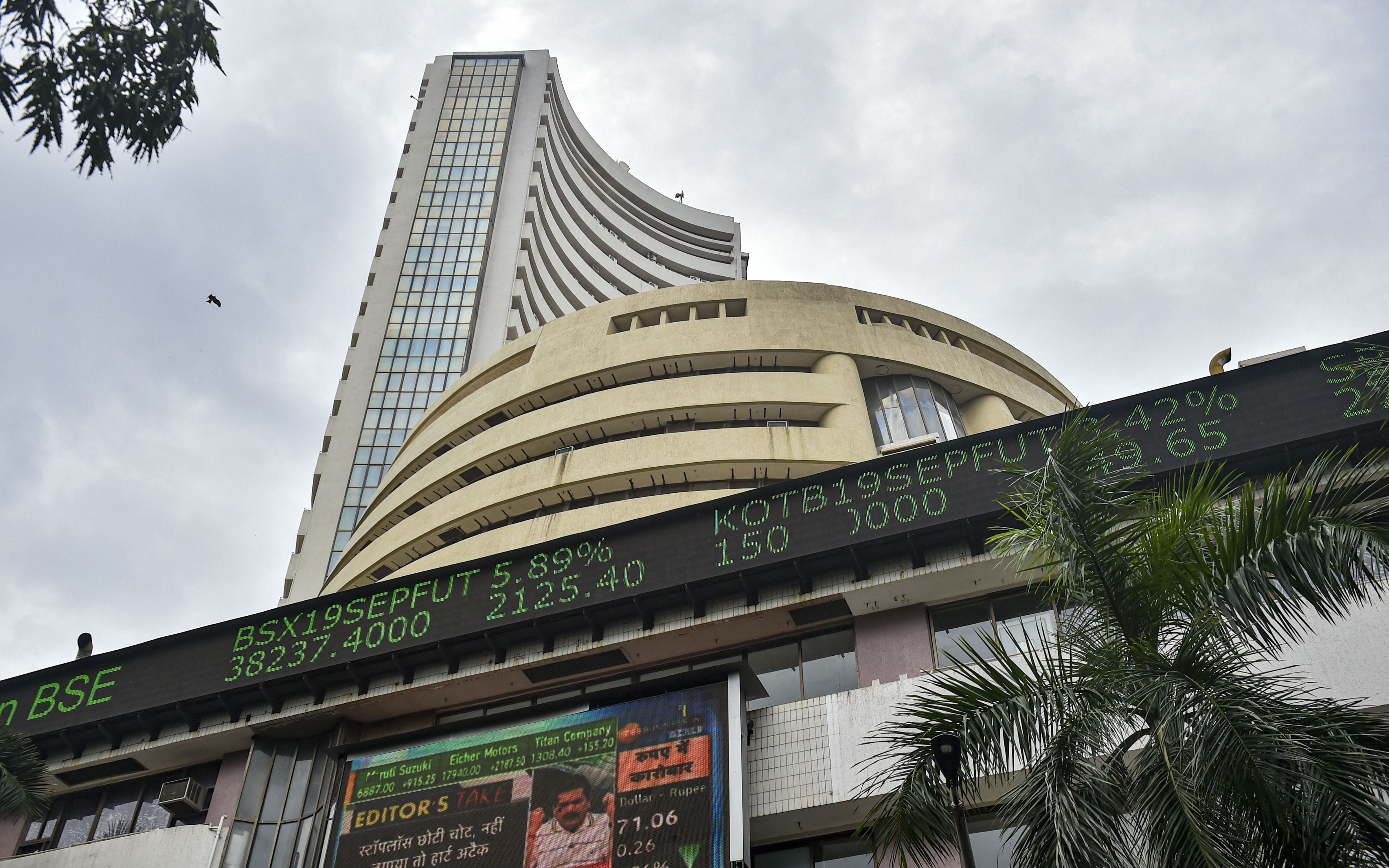
Nine of top 10 firms lose nearly ₹2.2 lakh cr in market valuation
Nine of the 10 most-valued companies lost a whopping ₹2,19,920.71 lakh crore in their total market valuation last week with the barometer Sensex tanking more than 3 per cent.

Nine of the 10 most-valued companies lost a whopping ₹2,19,920.71 lakh crore in their total market valuation last week with the barometer Sensex tanking more than 3 per cent.
Reliance Industries (RIL) was the only scrip to post gains in its market valuation among the top-10 valued companies.
Podcast: Dollar no safe haven, its global dominance will be history: Jim Rogers
Among losers, Tata Consultancy Services (TCS)’s market valuation tanked ₹81,506.34 crore to ₹10,71,263.77 crore. The valuation of HDFC Bank declined by ₹2,202.12 crore to reach ₹8,45,552.53 crore.
The market capitalisation of ICICI Bank dropped by ₹18,098.57 crore to ₹4,13,078.87 crore and that of Hindustan Unilever by ₹11,536.32 crore to ₹5,00,937.14 crore.
HDFC’s valuation declined by ₹35,389.88 crore to reach ₹4,57,518.73 crore and that of Infosys by ₹16,613.57 crore to ₹5,33,487.07 crore.
The market capitalisation of Bajaj Finance fell by ₹15,712.46 crore to ₹3,15,653.33 crore and that of Kotak Mahindra Bank dipped ₹30,695.43 crore to ₹3,53,081.63 crore.
The valuation of SBI went down by ₹8,166.02 crore to reach ₹3,48,238.34 crore.
Lone gainer RIL, on the other hand, added ₹2,092.01 crore to its valuation which stood at ₹13,21,044.35 crore at close on Friday.
Key benchmark index Sensex dropped by 1,786 points or 3.46 per cent last week amid weak global cues. The 30-share index posted its biggest single-day fall in nearly 10 months on Friday while the NSE Nifty plunged over 568 points to crack below the psychological 15,000-mark, tracking global selloffs triggered by a panic in bond markets overseas.
In the ranking of 10 most-valued companies, RIL was at the top of the chart followed by TCS, HDFC Bank, Infosys, Hindustan Unilever Limited, HDFC, ICICI Bank, Kotak Mahindra Bank, SBI and Bajaj Finance.
In September 2020, eight of the top 10 companies by market capitalisation witnessed a combined erosion of ₹1,57,277.53 crore in valuation. Then, the Sensex lost 1,457.16 points, or 3.83 per cent, when two firms — Infosys and HCL Technologies — ended as gainers among the most-valued firms.
What is m-cap
In simple terms, market capitalisation (m-cap) refers to the value that the stock market assigns to a company. It is purely determined by what market participants think the company is worth.
Also read: RIL’s retail arm receives ₹7,500 cr from Silver Lake for 1.75% stake sale
A more precise definition of m-cap is the total value of all outstanding shares of a company. In other words, it is derived by multiplying the price of each share as decided by the stock market with the total number of outstanding shares. So, for example, the outstanding shares of Reliance Industries is 6,76,18,44,754. Now, to calculate the company’s m-cap, you multiply the shares outstanding with its current market price. When the markets closed on Friday, each share of Reliance Industries was worth ₹2,201.70. That gives the total m-cap of the firm as ₹14,88,797.82 crore (6,76,18,44,754 * 2,201.70).
Why is m-cap important?
For one, it gives an indication of how big a company is relative to others. So a company with a market capitalisation of say ₹10,000 crore is much bigger than say a company with ₹100 crore.
Secondly, since it is the value determined by market participants, the m-cap of a company is considered as the collective wisdom of all those who trade in its shares and, as such, forms a reliable gauge of its performance and prospects.
What affects m-cap?
Assuming that there is no change in the equity structure of a company, its m-cap is determined by market participants’ perception of what it is worth. That perception gets reflected in the company’s share price. So when a majority feels a company’s prospects are good, the share price goes up and vice-versa. In that sense, the m-cap is affected by the change in sentiment of investors.
Any positive news will drive up the market capitalisation. The m-cap of Reliance Industries, for example, has more than doubled since March on the back of a series of news about big investments into the company. On the contrary, the m-cap of Yes Bank has fallen by over 97% since August 2018 due to bad news flows that affected investor sentiment.
How can it help individual investors?
Companies are classified as large-caps, mid-caps and small-caps based on m-caps. Large cap companies are generally less risky than mid or small-cap companies. So an equity investor, whose main concern is the risk involved in investing, can minimise it by sticking to only large-cap companies. On the flip side, if you are the kind who can tolerate risk, then you can consider mid-cap and small-cap companies, which can provide higher returns than large-cap companies but come with higher risk as well. Also, only a very few percentage of mid-cap and small-cap companies continue to keep growing.
(With inputs from agencies)


